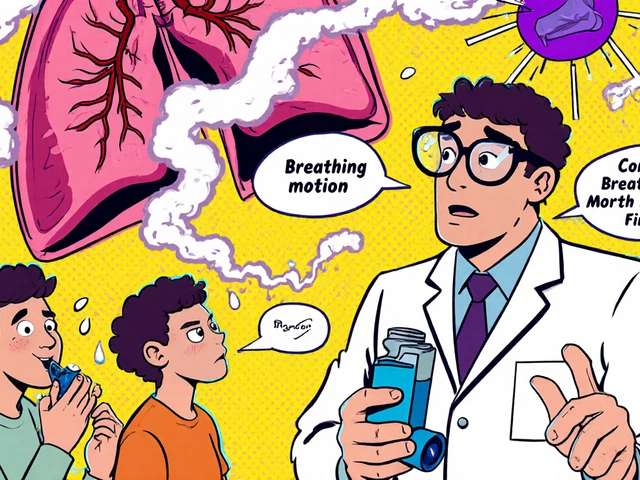Stress Reduction: Simple Strategies for a Calmer Life
When working with Stress Reduction, the practice of lowering mental and physical tension through lifestyle changes, relaxation methods, and thoughtful habits. Also known as stress management, it helps the body keep cortisol levels in check and supports overall well‑being. Right alongside it, Anxiety, a common emotional response that can amplify stress and interfere with daily tasks often shows up, while Breathing Techniques, controlled inhale‑exhale exercises that activate the parasympathetic nervous system serve as a quick fix for nervous spikes. In the workplace, Productivity, the ability to maintain focus and output despite distractions can suffer when stress runs high, and even simple physical Discomfort, aches, tension, or fatigue that signal the body’s alarm system can become a feedback loop that fuels more stress.
Why Managing Stress Matters
Stress Reduction encompasses a range of habits, from mindfulness meditation to regular exercise, and each habit targets a specific stress pathway. For example, anxiety often triggers rapid breathing, which raises heart rate and fuels a sense of panic; applying breathing techniques breaks that cycle by slowing the breath and lowering heart rate. When stress spikes, productivity drops because the brain’s prefrontal cortex, which handles concentration, gets hijacked by the amygdala’s alarm signals. By integrating short breathing breaks, you give the prefrontal cortex a chance to regain control, leading to clearer thinking and better task completion. Discomfort, whether it’s a stiff neck from hours at a desk or a headache from screen glare, also signals that the body is under strain. Simple ergonomic tweaks and micro‑stretch routines can ease that tension, sending a signal to the nervous system that it’s safe to relax. Together, these strategies create a feedback loop: less anxiety, steadier breathing, higher productivity, and reduced discomfort all reinforce each other, making stress reduction more sustainable.
Our curated collection below pulls together medical insights and practical guides that show how stress intertwines with health conditions and everyday challenges. You’ll find articles on how anxiety can worsen breathing disorders, why discomfort at work hurts focus, and how stress impacts medication side‑effects such as those from lamivudine‑zidovudine or even salmonellosis during pregnancy. Whether you’re looking for quick breathing drills, ways to boost productivity while feeling uneasy, or deeper explanations of stress‑related health risks, the posts ahead give you concrete steps and evidence‑based advice. Dive in and discover tools you can start using today to lower stress and improve overall wellness.

How Pets Help Reduce Tremors: Benefits of Animal Companionship
Discover how animal companionship can ease tremors, lower stress hormones, improve balance, and boost quality of life through practical tips and real stories.




